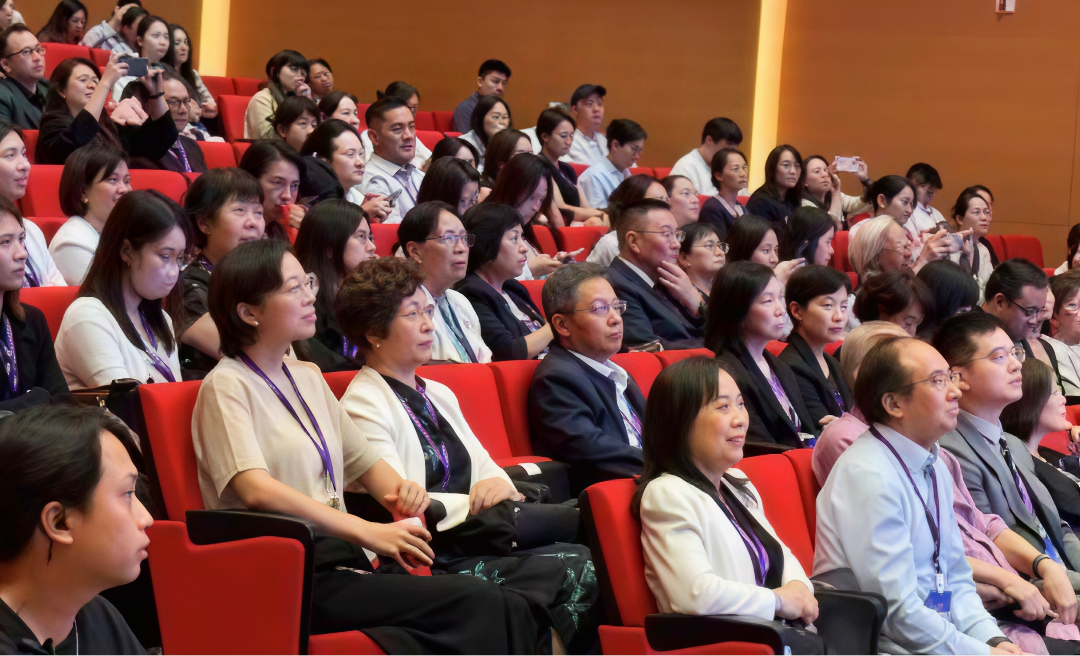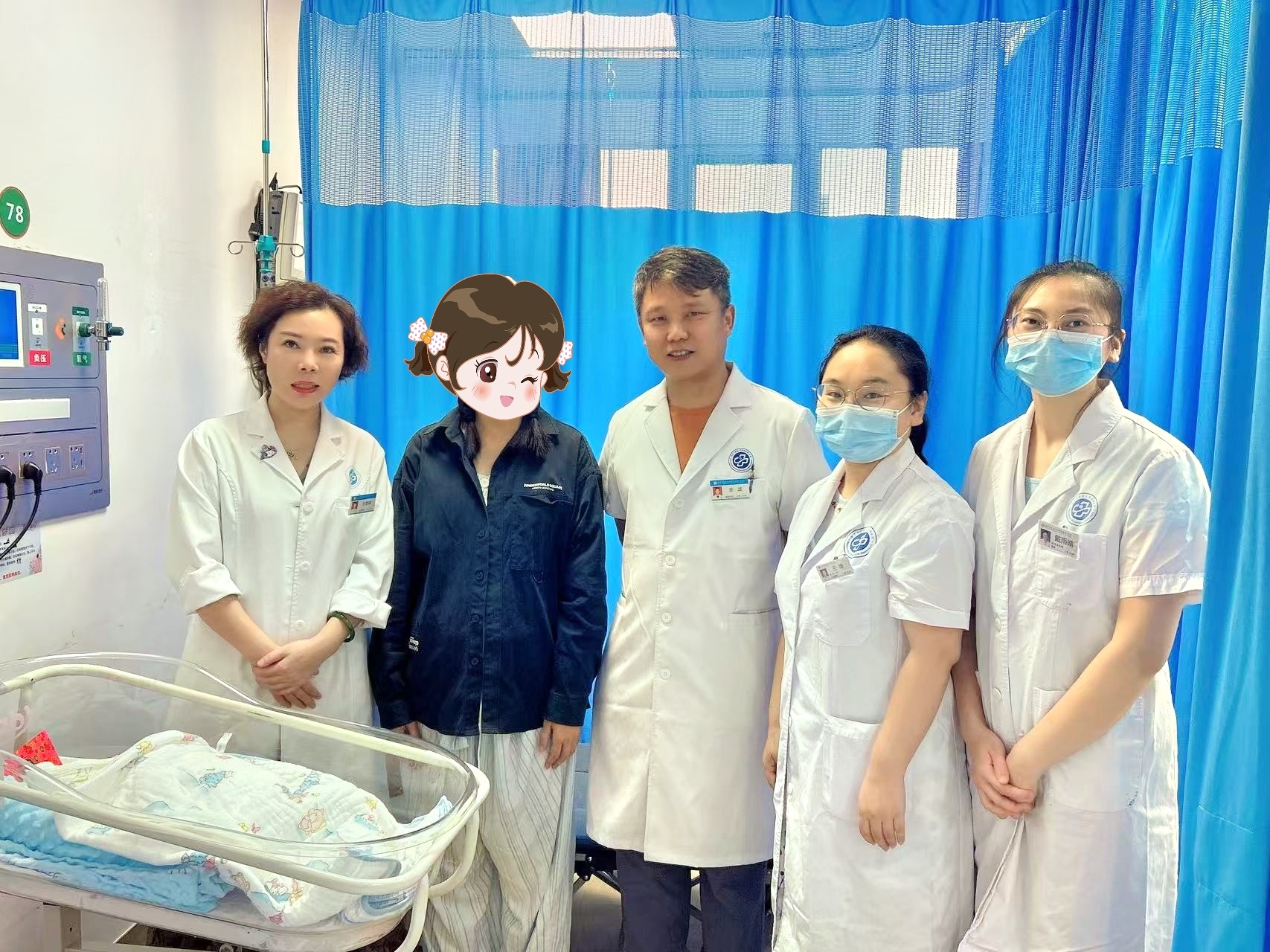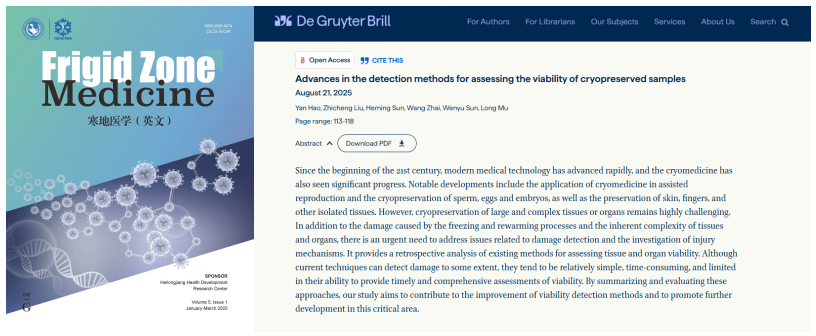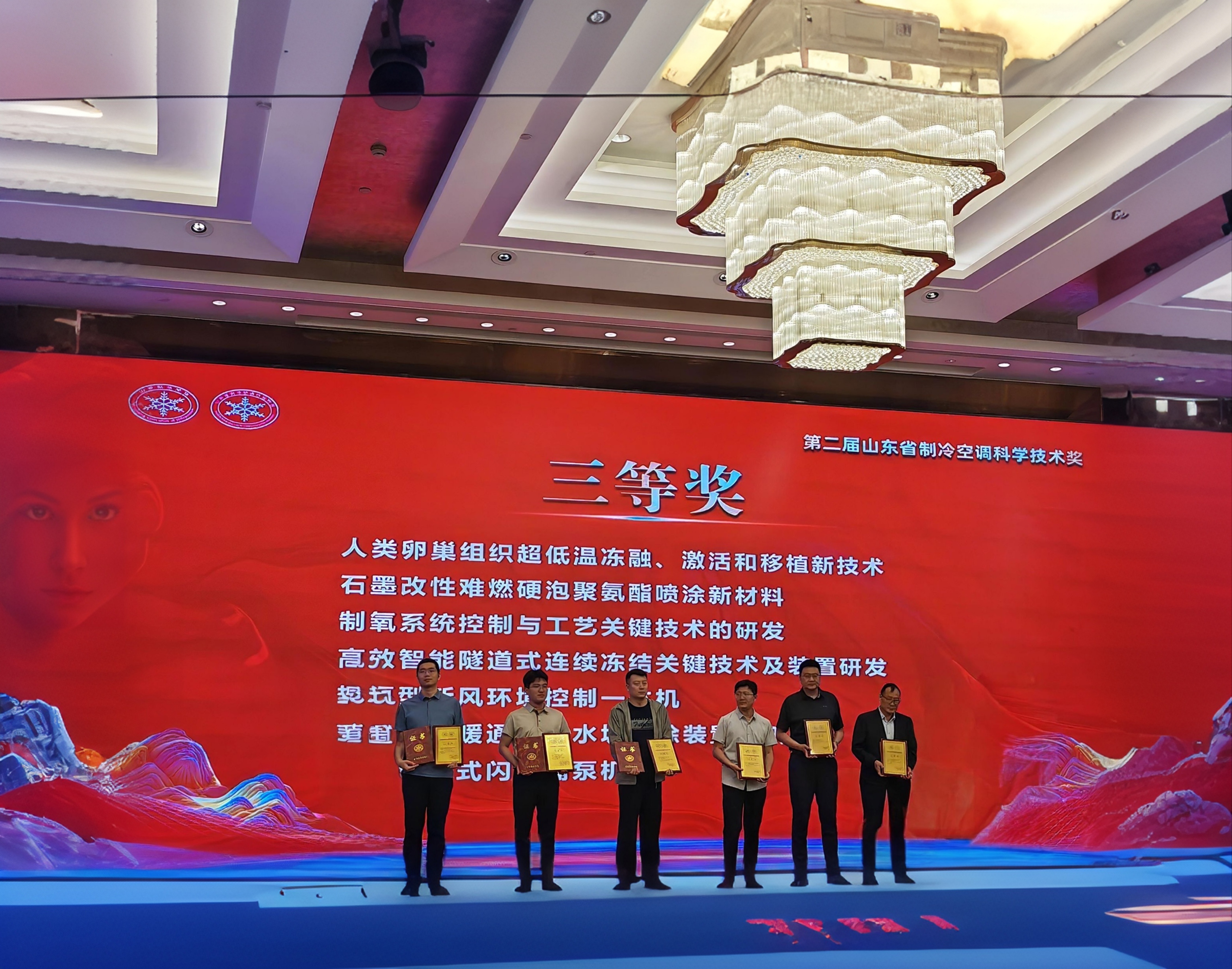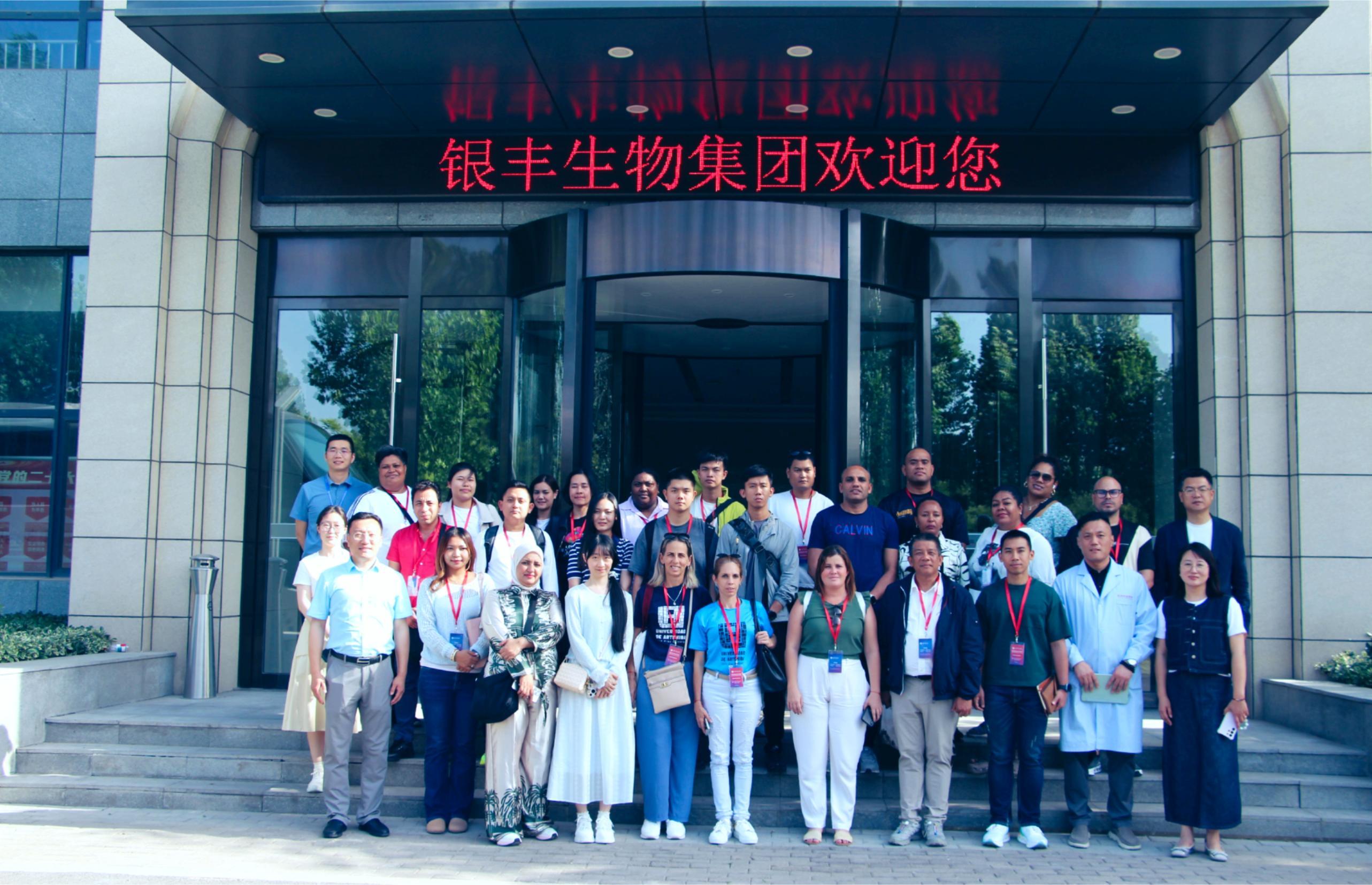New Research Solves the Problem of Red Blood Cell Cryopreservation, Providing Key Technical Support for Building a Long - Term Blood Bank
Release time:
2025-09-26
Recently, a research team composed of Songshan Lake Materials Laboratory, Suzhou University, and Dongguan People's Hospital successfully developed a revolutionary red blood cell cryopreservation protocol by drawing on mRNA vaccine delivery technology. This provides key technical support for building a stable and long - term blood bank. The relevant results were recently published in the internationally renowned academic journal Advanced Healthcare Materials.
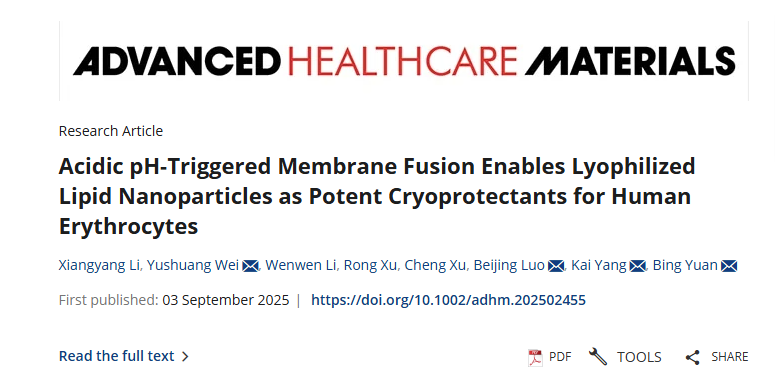
The Shortage of Blood Resources Spurs Technological Innovation
To effectively handle emergencies and meet clinical needs, it is urgent to build a stable and long - term blood bank. However, enabling precious red blood cells to enter long - term "dormancy" and safely "wake up" when needed has always been a major challenge in the field of transfusion medicine.
Currently, the widely used red blood cell cryopreservation technology in clinical practice relies on high - concentration glycerol as a cryoprotectant. Although it allows for storage over ten years, it has issues such as high cytotoxicity, a cumbersome removal process, and long processing time, which severely limit the response efficiency for emergency blood use. Meanwhile, trehalose, which has excellent biocompatibility, cannot enter red blood cells on its own, so its protective potential has not been effectively utilized.
Breaking Through Traditional Technological Bottlenecks: An Innovative Solution for Red Blood Cell Cryopreservation
To address the long - standing problem of red blood cell cryopreservation in transfusion medicine, the team led by Associate Researcher Wei Yushuang and Researcher Yuan Bing from Songshan Lake Materials Laboratory, in collaboration with Professor Yang Kai from Suzhou University and Chief Technician Luo Beijing from Dongguan People's Hospital, innovatively borrowed the principle of mRNA vaccine delivery technology. They successfully developed a lyophilizable ionic lipid nanoparticle (LNP) platform, opening up a new way for red blood cell cryopreservation.
The core of this technology lies in the pH - responsive design of LNP. At physiological pH (7.4), LNP remains electrically neutral and has weak interactions with red blood cells. When the environment becomes mildly acidic (pH 6.5), the ionic lipids on the LNP surface are protonated and become positively charged. Through electrostatic interaction, LNP fuses with the red blood cell membrane and precisely delivers the encapsulated trehalose into the cells.
Experimental data show that this protocol achieves an 85% recovery rate of red blood cells after freeze - thawing, comparable to the protection effect of the traditional glycerol method, and significantly simplifies the operation process. Moreover, the research team further developed the LNP/trehalose preparation into a lyophilized powder, solving the problem of poor long - term storage stability of liquid preparations and laying the foundation for large - scale transportation and distribution.
This research provides an efficient and safe solution for red blood cell cryopreservation. It also offers important references for the development of preservation technologies for other types of cells such as stem cells and immune cells. It is expected to promote the upgrading of the global blood resource reserve system and provide key technical support for responding to public health emergencies and clinical emergency blood use needs.
Latest developments
Over the two days, the symposium was not only a collision of ideas but also seeds sown to advance social progress in life culture. The Shandong Yinfeng Life Science Public Welfare Foundation will continue to use technology as wings and culture as roots, collaborating with all sectors of society to enhance the quality of life for the Chinese people and build a human-centered life care system.
According to recent announcements by the Jinan Municipal Bureau of Science and Technology, 11 outstanding achievements from Jinan have been included in the 2025 "Shandong Outstanding Achievements Report" project. Among them is the globally first-of-its-kind ovarian tissue dual-activation technology developed by Shandong Silver Med Life Science Research Institute (Jinan).
Recently, Frigid Zone Medicine, an authoritative international journal in the field of cryomedicine, published an important review titled "Advances in the Detection Methods for Assessing the Viability of Cryopreserved Samples". Written by the team of Yinfeng Cryomedical Research Center, the article systematically reviews and analyzes various detection techniques currently used to evaluate the viability of cryopreserved cells, tissues, and organs. It also proposes key directions from the perspectives of methodological integration and future instrument development, offering crucial theoretical support and practical guidance for the long - term cryopreservation of complex tissues and organs.
Recently, the "Novel Technology for Ultra-Low Temperature Cryopreservation, Activation, and Transplantation of Human Ovarian Tissue," developed through a collaborative effort between Shandong Yinfeng Life Science Research Institute and Beijing University of Chinese Medicine Shenzhen Hospital, has been awarded the 2025 Shandong Refrigeration and Air Conditioning Science and Technology Award. This groundbreaking technology pioneers a new pathway for female fertility preservation, marking a significant leap in China’s interdisciplinary advancements in reproductive medicine and cryobiology.
On May 19, a delegation from the Chinese Training Workshop for Government Officials of Developing Countries visited the exhibition hall of Yinfeng Biological Group's Cryomedicine Research Center. Government officials from multiple countries gained in-depth insights into Yinfeng’s innovative achievements in cryobiomedicine, cell storage, genetic technology, and other fields. They engaged in discussions with the delegation on technology transfer and international cooperation, contributing to the building of a global community with a shared future for humanity.



